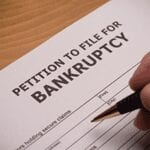Is bankruptcy published in the newspaper?
In most consumer bankruptcies, where the net realizable assets are under $15,000, the trustee proceeds under what is called the “Summary Administration” provisions of the Bankruptcy and Insolvency Act. Those provisions allow the trustee to cut costs in the administration. For example, instead of sending notices to creditors by registered mail, the trustee is permitted to send notices by ordinary post. Likewise, for publication in newspapers. In Summary Administrations, there is generally no obligation upon the trustee to publish notice of the bankruptcy in a newspaper.
However, if the assets exceed $15,000, then the estate is administered under the ordinary provisions of the Bankruptcy and Insolvency Act. In that case, there must be a notice published in a local newspaper in the area in which the consumer debtor resides. The notice in the newspaper advises the public that there has been a bankruptcy, whether by assignment or by receiving order and that the first meeting of creditors is set for a certain date. It also advises creditors that they may file their proofs of claim on or before the meeting.
Within five days of bankruptcy, the trustee must prepare a notice to creditors if there is going to be a meeting of creditors. If the trustee cannot compile the list within that time, the trustee must obtain an order extending the time to call a meeting of creditor.
Contact Rumanek & Company Ltd. for more information on bankruptcy and debt solutions. Or please fill out the free bankruptcy evaluation form. To learn more please visit our YouTube Channel. Rumanek & Company have been helping individuals and families overcome debt for more than 25 years.




